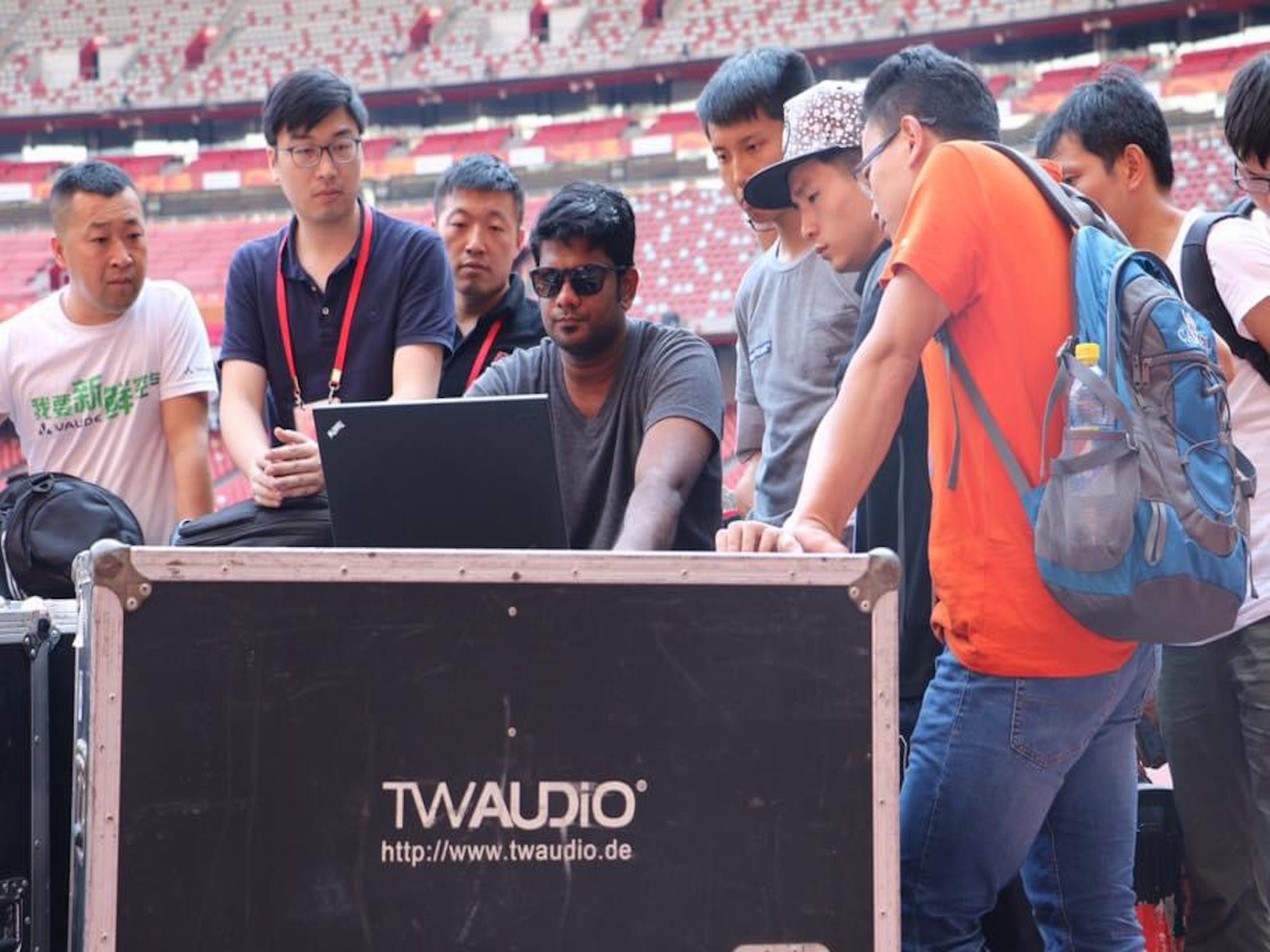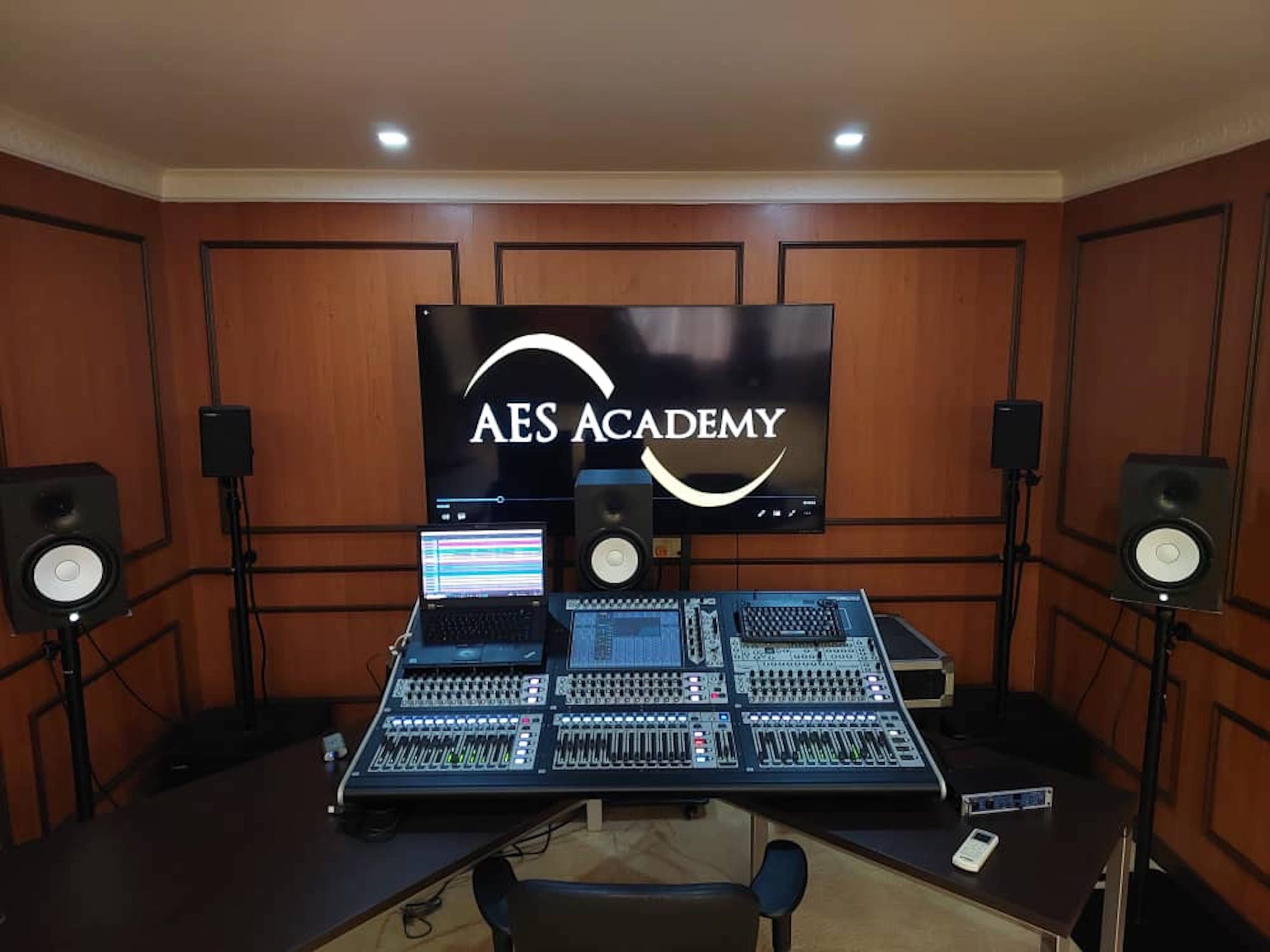How much do you listen — really listen — to the world around you?
The meeting room in your office that’s soundproofed just enough to get you to focus; the gentle announcement of the doors closing on public transportation; the crackling shock of airport announcements getting you to your gate just in time… Even at home, too, appliances hum at just the right frequency to remind you, yes, the refrigerator is in fact still working just fine.
All of these carefully crafted soundscapes are made possible by audio engineers, whose skills and technical expertise allow us to experience these small but essential comforts. Far beyond just creative or media industry applications, audio engineering impacts all of us in fascinating, unknown ways. Take, for instance, Mohd Farid Bin Ismail, an audio engineer in Malaysia who uses his expertise to improve sound quality in mosques, ensuring sermons and recitations are clear and free from distracting noise, enhancing worshippers’ experience by fostering a peaceful, spiritually enriching environment.

How else does audio engineering shape our day-to-day life? And how can we provide support and uplift the people in this field who work tirelessly to curate our constantly changing soundscapes?
Any Industry Can Work In Harmony With Audio Engineers
Audio engineering is crucial for just about every industry. For example, audio engineering expertise is essential in large infrastructure projects such as stadiums and theatres. AES Academy, for instance, has consulted on the design of the Sultan Ibrahim Stadium, where audio engineers collaborated with structural, mechanical, and infrastructure experts to develop a sound system that delivers clear, evenly distributed audio across the vast space.
In fact, audio engineers are also responsible for designing effective public address systems in locations such as schools, airports, and auditoriums. Through careful planning of speaker placement and calibration, they ensure announcements are clearly heard throughout these spaces, which is essential for effective communication and can even be life-saving in emergencies.
There’s also the role audio engineers play in reducing noise, too. In hospitals, audio engineers help to design soundproofed patient rooms, which promote comfort and aid recovery by minimising disruptive noise, and in residential buildings, engineers implement sound barriers to improve privacy, ensuring that sound doesn’t travel easily between walls and floors. These applications are crucial in creating quiet, private environments that positively impact everyone’s well-being.
Meanwhile, in the automotive industry, audio engineers contribute to designing car audio systems, optimising them for quality, clarity, and user experience, as well as a car’s overall noise reduction. Additionally, automotive audio engineers work on developing warning sounds for electric vehicles, which are typically quieter and require added sound elements for safety.
Even certain corporate environments employ audio engineers to enhance virtual meetings and video conferencing technologies. With remote work on the rise, these companies rely on audio engineers to optimise sound quality, reduce background noise, and ensure that communication tools are as effective as possible for a seamless professional experience.
Audio engineers also contribute to sustainable practices, able to select and design systems that minimise power consumption; so if more effort can be put into having a closed loop cycle that enables local audio engineers to be able to innovate and produce high-grade products and technology, the local production and manufacturing space can be elevated. This approach not only reduces the carbon footprint of sound systems but also makes sustainable audio solutions more accessible and affordable locally.
It’s clear that all these roles require a deep understanding of sound, acoustics, and digital technologies, showing that the reach of audio engineering extends far beyond traditional media. But what else can be done to support this community?
Boosting Our Local Audio Engineers
Primarily, the most significant challenge in uplifting Malaysia’s audio engineers is the lack of formalised education opportunities in this space, which has led to inconsistent standards across the country. Many aspiring engineers struggle to access hands-on experience, advanced audio technology, and industry-standard tools.
For aspiring audio engineers, it’s important to be able to build their proficiencies with industry-standard Digital Audio Workstations (DAWs) and learn how to set up, operate, and troubleshoot complex audio systems. Furthermore, there are other supporting skills, like learning programming languages like Python or C++, gaining knowledge of Max/MSP or Pure Data, or even specialised training in Dolby Atmos, THX, or other immersive sound formats that can help audio engineers find their niche.
In addition, creating and fostering community spaces and resource centres that encourage local talent development is crucial, alongside collaborations with other industries to enable better infrastructure of resources and further exposure to emerging technology, as well as hands-on practical training.
With all this in mind, attending a formal educational audio engineering institution — one like AES Academy — is not only critical for equipping aspiring audio engineers with industry-relevant skills but also for connecting Malaysian talents with global industry leaders. For instance, AES has been involved in designing audio systems for stadiums, theatres and sophisticated project installations, which involves different engineering disciplines such as structure, infrastructure and mechanics.

Audio engineers are the silent professionals who shape our auditory experiences, making them an indispensable part of our daily lives. Increased support for local audio engineering talent, through community resources and cross-industry collaboration, could further enable Malaysian audio engineers to apply their skills across a wide range of sectors. By creating soundscapes that support comfort, privacy, safety, and sustainability, they are helping to enrich our environments in ways we may not always notice but would miss if they disappeared.
*This article was written by Augustine Edward, founder of AES Academy — The Audio School.
**Disclaimer: The views expressed are those of the writer and do not necessarily reflect those of NHA – News Hub Asia.![]()

